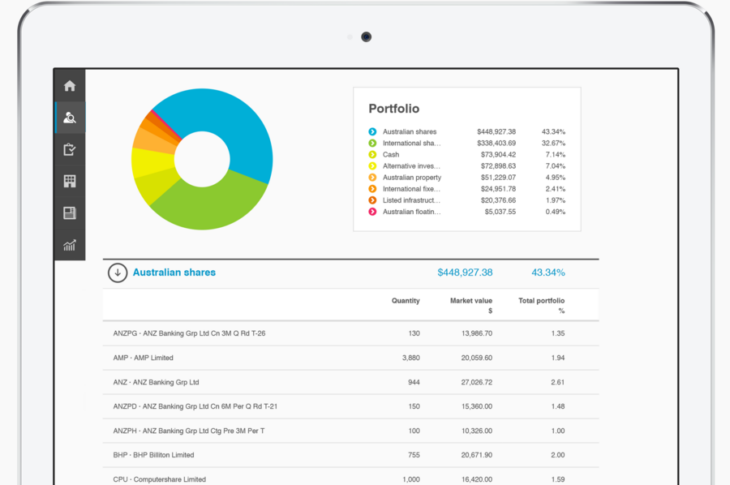What the 2023-24 Federal Budget means for you
The 2023-24 Federal Budget has been delivered. The dominant theme was the cost of living.
From a pure financial planning and wealth perspective, the budget was limited and included no surprises.
As is always the case, Budget measures need to pass through the legislative process before they become law and may change during that process.
The items of most relevance for our self-funded retirees, professional families and successful business owners include:
Self-Funded Retirees
As expected, and in line with a pre-Budget announcement, the Government intends to reduce the tax concessions available to individuals with a total superannuation balance (TSB) above $3 million. Given the amount of interest clients have taken in regards to this measure, we have provided more detail. If passed, this measure will bring the headline tax rate to 30%, up from 15%, for earnings (including unrealised gains) that relate to the proportion of an individual’s superannuation balance that is greater than $3 million and in the accumulation phase. The tax rate would increase from 0% to 15% for those balances supporting a retirement phase income stream. Balances below the proposed $3 million threshold will continue to be taxed at 15% for benefits held in the accumulation phase or 0% if held in a retirement phase pension account. The $3 million threshold will not be indexed over time. In order to calculate the earnings, adjustments will be made to the withdrawals and contributions from the start of the year till the end of the year. Assessment and payment of tax will be similar to the existing process for Division 293 tax (that is; assessed and paid after lodgement of personal tax return). Any negative earnings calculated can be carried forward indefinitely and offset against future earnings. A commensurate treatment is intended to apply to defined benefit interests. Whilst this measure is yet to be legislated, and it is possible the final measures could differ to those currently announced, there may be merit in taking action to limit the potential future impact of these changes. As a client of ITL Financial Planning, we will automatically consider this proposal (and all the proposals) as part of your EOFY planning in the coming weeks.
The Government also proposes to increase the Medicare levy low-income thresholds to account for recent inflation. A number of clients will also welcome the announcement of reform, support and fairer wages in the Aged Care sector as well as the tripling of bulk billing incentive benefits.
Beyond this, it was more about what was not announced. The low and middle income tax offset is still expected to cease (from 30 June 2022), the minimum drawdowns from account based pensions are still set to return to normal (from 1 July 2023) and the general transfer balance cap (TBC) and total super balance (TBC) thresholds are still expected to receive a sizeable increase (due to high inflation) from 1 July 2023. These measures are already legislated and create a need to review the appropriateness of your existing advice strategies. As a client of ITL Financial Planning, we will automatically consider this proposal (and all the proposals) as part of your EOFY planning in the coming weeks.
Furthermore, Stage 3 tax cuts are still planned to take effect from July 2024. You can read more about this and other announcements under the “professional families” heading.
Professional Families
The Government proposes superannuation guarantee (SG) to be paid at the same time as salary and wages (from 1 July 2026). This is a positive as currently it only needs to be paid quarterly and if legislated, will lead to many of our professional families having SG paid earlier, more regularly and allow the earlier payments to benefit from compounding interest in a low tax environment.
The Government also announced that the previously proposed exemption from fringe benefits tax, for certain electric vehicles salary packaged, will only be available if packaged before 1 April 2025 (previously the proposal was open indefinitely).
Beyond this, it was more about what was not announced. Stage 3 tax cuts and indexation of superannuation contribution thresholds are still expected to take effect from July 2024. This means that taxpayers with more than $45,000 of taxable income will have a reduced tax liability from 1 July 2024. Furthermore, an increase of 0.5% in the super guarantee rate to 11% is still expected to take effect from July 2023. Both these measures are already legislated. However, changes could still be announced at a later stage.
Many of the proposed changes outlined under “self-funded retirees” and “successful business owners” will also impact professional families.
Successful Business Owners
For our successful business owners, the biggest proposal was in relation to the need to pay employee superannuation guarantee (SG) at the same time as their salary and wages (from 1 July 2026).
The Government also announced, for FY24, an increase to the instant asset write-off threshold to $20,000, the continued ability to place assets valued over the threshold into the small business simplified depreciation pool and an additional 20% cost deduction (up to $20,000) of depreciating assets that support electrification and more efficient energy use.
Many of the proposed changes outlined under “self-funded retirees” and “professional families” will also impact successful business owners in the future.
Concluding thoughts
Overall, the proposals are limited for self-funded retirees, professional families and successful businesses. However as indicated earlier, most will require the passage of relevant legislation through Parliament and may change during that process.
This information has been prepared and issued by ITL Financial Planning and is current as at 10 May 2023. Material contained in this publication is an overview or summary only and it should not be considered a comprehensive statement on any matter or relied upon as such. The information in this document regarding taxation and legislative change is based on policy announcements which are yet to be passed as legislation and may be subject to future change. This information contains material provided directly by third parties (mainly BT, a part of Westpac Banking Corporation ABN 33 007 457 141 AFSL and Australian Credit Licence 233714 (Westpac)). It is given in good faith and has been derived from sources believed to be accurate at its issue date. It should not be considered a comprehensive statement on any matter nor relied upon as such. ITL Financial Planning does not accept responsibility for the accuracy or completeness of, or endorses any such material. Except where contrary to law, we intend by this notice to exclude liability for this material. This information does not consider your personal objectives, financial situation or needs and so you should consider its appropriateness having regard to these factors before acting on it. The tax position described is a general statement and is for guidance only. It has not been prepared by a registered tax agent. It does not constitute tax advice and is based on current tax laws and our interpretation. Your individual situation may differ, and you should seek independent professional tax advice. It is important to note that the policies outlined in this publication are yet to be passed as legislation and therefore may be subject to change or further refinement.
Written by Shereen Churchill (Financial Adviser)
ITL Financial Planning and its advisers are Authorised Representatives of Fortnum Private Wealth Ltd ABN 54 139 889 535 AFSL 357306. www.fortnum.com.au. Any information on this website is general advice only and does not take into account any person's objectives, financial situation or needs. Please consider your own circumstances and consider whether the advice is right for you before making a decision. Always obtain a Product Disclosure Statement (if applicable) to understand the full implications and risks relating to the product and consider the Statement before making any decision about whether to acquire the financial product.

